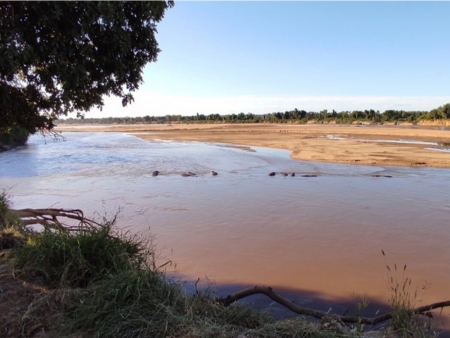Country: Botswana, Mozambique, South Africa and Zimbabwe
The Limpopo River Basin (LRB) spans four countries—Botswana, Mozambique, South Africa, and Zimbabwe—covering an estimated catchment area of 412,000 km². Home to around 18 million people, this population is expected to exceed 20 million by 2040 (LIMCOM 2013). Urban areas in the basin are major consumers of water, driven by high demand from industry, power generation, and growing urban populations. The basin also supports significant agricultural activities, including both large-scale irrigation and rain-fed subsistence farming. The rapidly increasing population has placed considerable pressure on land, water, and other natural resources in the region.
The Limpopo River Basin also hosts critical biodiversity areas and protected zones, where water availability is vital for maintaining ecosystem functions. Notably, the Great Limpopo Transfrontier Conservation Area (GLTCA)—which includes the Kruger National Park in South Africa, the Limpopo National Park in Mozambique, and the Gonarezhou National Park in Zimbabwe—spans approximately 3,577,144 hectares. This conservation area not only covers the parks themselves but also the surrounding rural and urban areas where local communities reside.
This project aims to promote integrated, cross-sectoral, and ecosystem-based management of the Limpopo River. The goal is to improve the living standards of people in the basin while conserving its natural resources and ecosystem services.
The midterm evaluation (MTE) will assess progress towards the achievement of the project objectives and outcomes as specified in the project document and assess early signs of project success or failure with the goal of identifying the necessary changes to be made to set the project on-track to achieve its intended results. The MTR will also review the project’s strategy and its risks to sustainability. Further, the MTE will assess the impact of COVID 19 on the implementation of the project and make recommendations on necessary changes in order for the project to still continue to make reasonable level of implementation progress even with the COVID 19 pandemic situation.
Duration: 01/2025 – 03/2025
Client: UNDP

